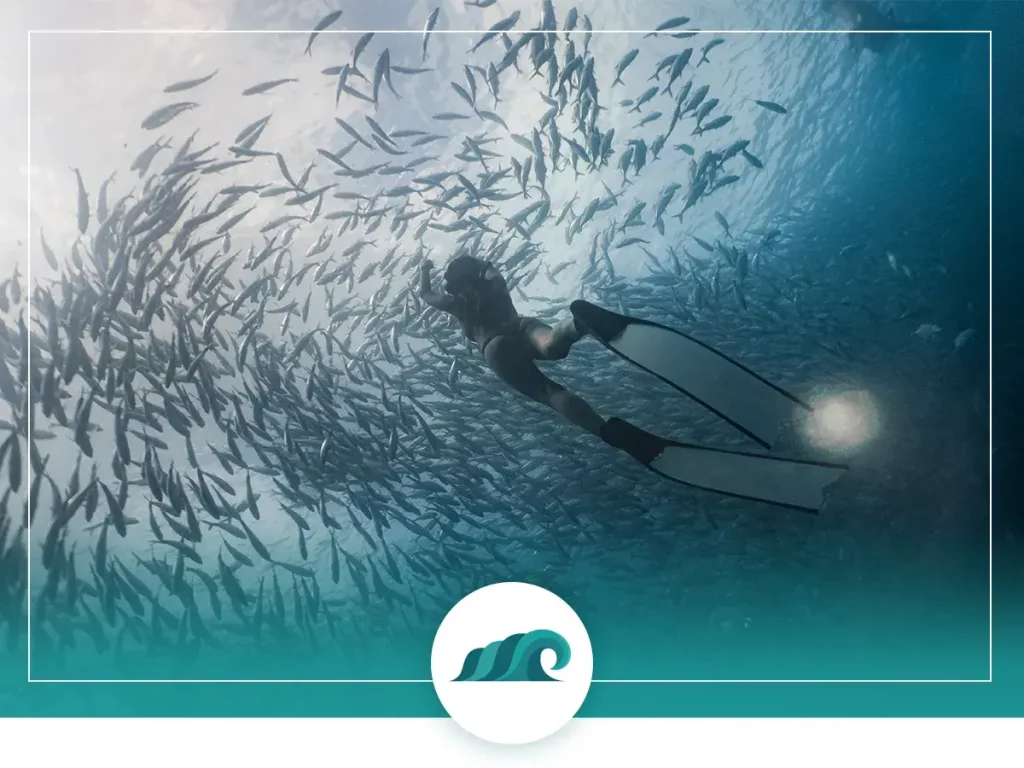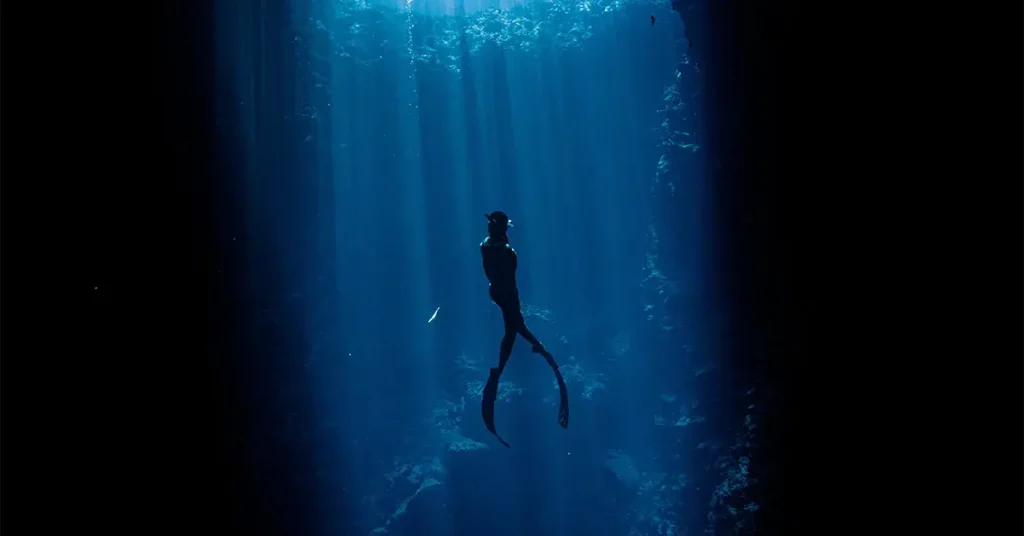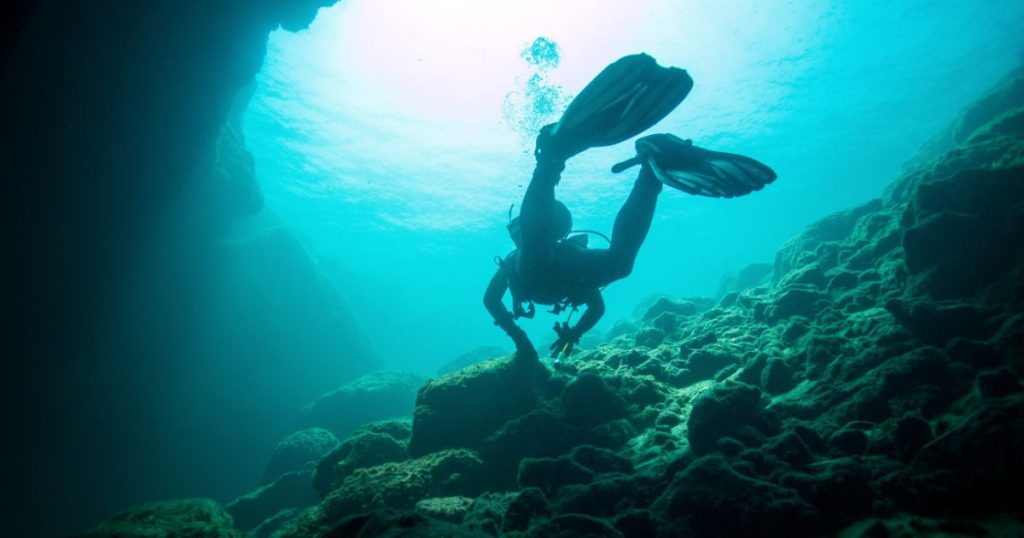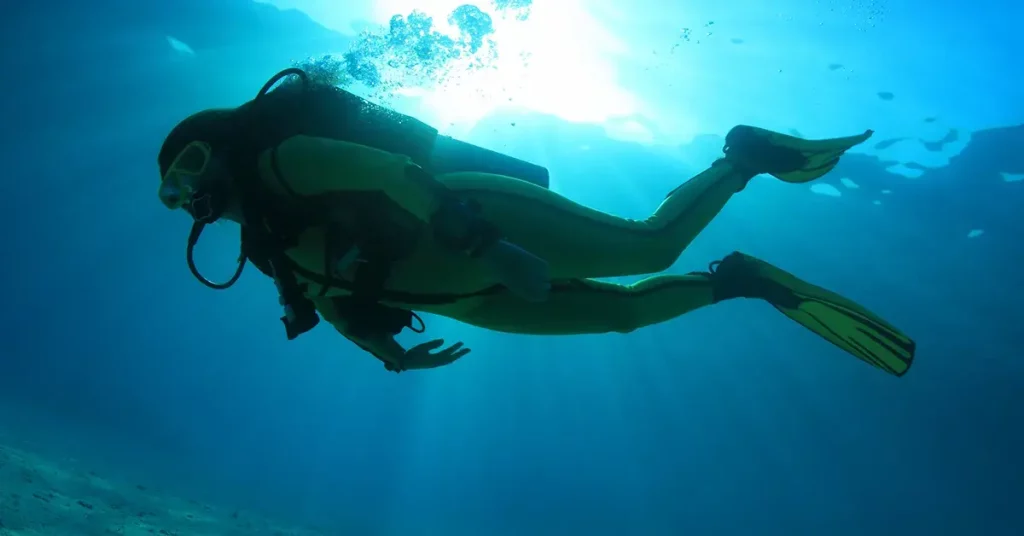When most people think about freediving, images of extreme athletes challenging each other and pushing their bodies to the limit come to mind. While this is sometimes the case, most freedivers find the sport to be an incredible health-boosting practice.
Freediving unassisted under the water, with nothing but a mask, fins, and your conscious mind, has a myriad of health benefits for the body and mind.
The Top 10 Health Benefits of Freediving:

- Lowers anxiety and stress. In many ways, freediving is similar to a form of yogic practice. Concentrating on slowing down your heart rate and holding in your breath results in lower levels of stress and anxiety. These lowered stress levels last even when you are out of the water and not actively freediving. Interestingly, a 2013 study showed that “the state anxiety, stress level, and negative affectivity scores were significantly lower among the athletes (freedivers) as compared to the non-athletes.”
- Increases self-confidence. Freediving also boosts self-confidence. The same 2013 study as above showed that people who engaged in the sport had higher self-confident coping strategies. They also had a significantly higher belief in the internal locus of control. This means they believe that they have more control over events in their own lives. Clearly, diving deep underwater on a single breath is a great confidence booster for the rest of your life!
- Enhances blood oxygen management. The more you practice freediving, the better your body becomes at using oxygen efficiently. When you submerge for an extended period of time, your body will go into the mammalian dive reflex. This is a natural phenomenon in all mammals, where the body optimizes respiration, slows the heart rate, and redirects oxygen to the vital organs. This reflex also causes the spleen to release extra red blood cells into the body.Interestingly, people who practice a lot of deep-dive training have a similar blood composition to those that live at high altitude. Their bodies adapt to the harsh environment and become more efficient at using oxygen.
- Clears your mind. Similar to a form of meditation, freediving requires an extreme focus on one thing at a time. When diving, all your daily distractions melt away as you focus intently on the dive. This is true for all underwater sports to some degree, but particularly with freediving. The lack of sound and other sensory diversions truly present a unique environment for clearing your headspace of any other worries.
- Increases ability in other water sports. One of the best health benefits of freediving is better performance in other water sports. Whether it’s surfing, scuba diving, swimming, or kayaking, freediving will teach you to remain calm in the water, and not panic if you get into a rough situation. Being able to hold your breath for a long period of time is a useful skill for any water sport, and could someday mean the difference between life and death.
- Increases flexibility. The deep breathing required for freediving requires good flexibility in the thoracic region (from the base of the neck to the abdomen). In fact, the more flexible your thoracic region is the more you will be able to inhale with a maximum breath. Because of this, freediving training focuses on increasing flexibility in the back and neck. Another area of training focus is breathing exercises that focus on diaphragm expansion.
- Good for joints. One of the major health benefits of freediving is a positive effect on joint health. When you are underwater, hydrostatic pressure is exerted over your entire body from the weight of the water. This means swelling in joints is reduced, so people with swollen joints from injuries or arthritis are often able to exercise without pain underwater.
- Boosts feel-good neurotransmitters. Just like the rush you feel after a hard workout, freediving boosts the feel-good neurotransmitters in your body. Adrenaline, noradrenaline, and dopamine are greatly elevated during and after freediving. This study demonstrated the enhanced levels of neurotransmitters in freedivers and explained them as being necessary for the enhanced red blood cell function that freedivers require.
- Better Body Composition. An improved physique is another one of the health benefits from freediving. There is no doubt that freediving is a great way to get into shape. All you have to do is take a look at the incredible physiques of freedivers like Herbert Nitsch or Tanya Streeter. Much like hard exercise, freediving is a form of ‘eustress’ for the body. This means it stresses the system just enough to produce positive benefits when repeated over the long term.
- Discipline. The American author Jim Rohn was famous for saying “We must all suffer from one of two pains: the pain of discipline or the pain of regret.” This quote perfectly sums up the incredible challenge of freediving. Holding your breath for prolonged periods of time while descending and ascending in the water is no easy task. Overcoming the urge to panic and turn around is a character-building exercise. Just like with any challenging discipline, with discipline comes mastery.




